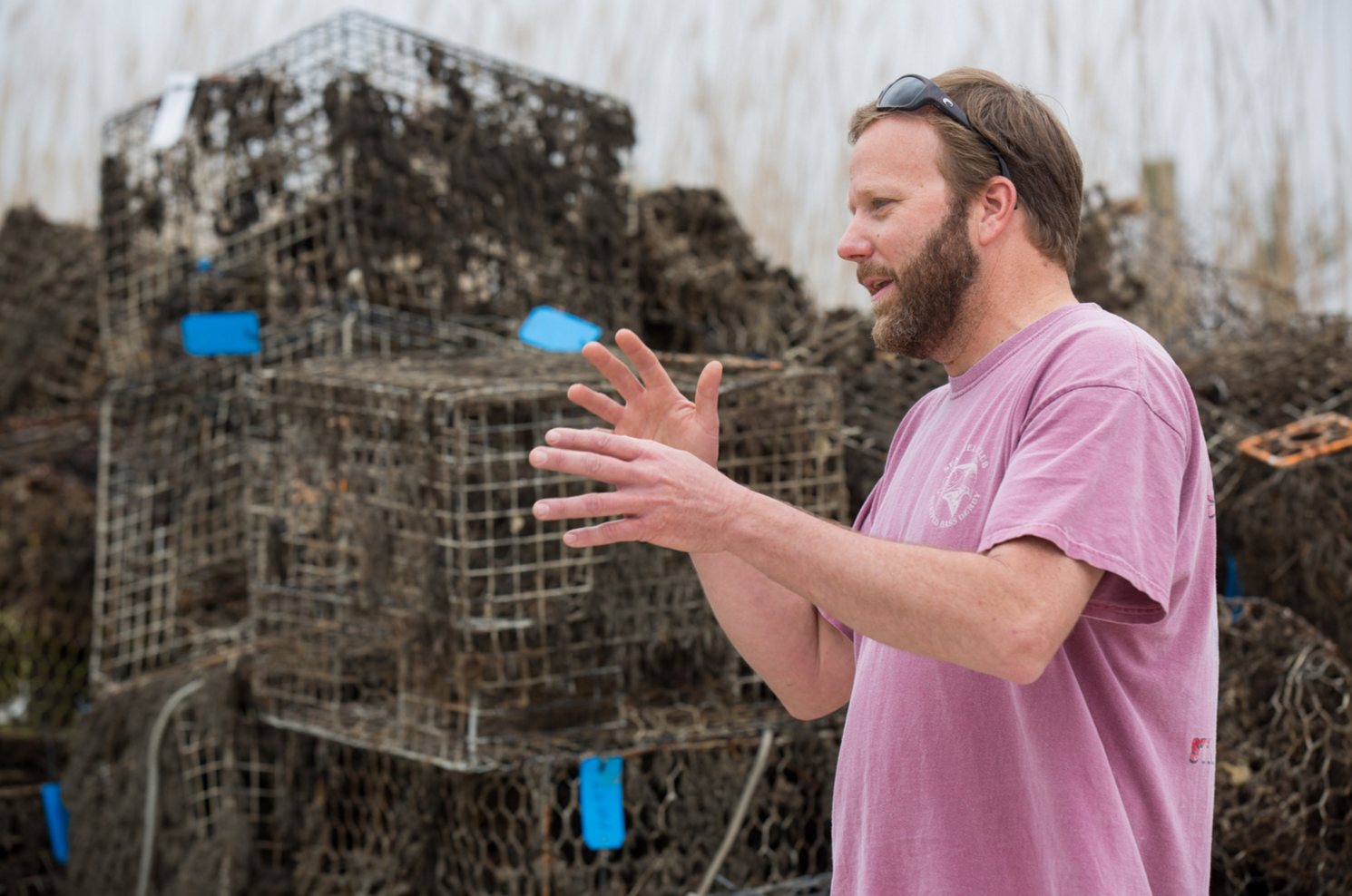Crab pot removal project benefits South Jersey’s commercial crabbing industry

Steve Evert
The Stockton University community joined forces late last month to weigh and process derelict crab pots that have been collected from Atlantic County tidal waterways.
It’s part of a crab pot recycling project that has recovered more than 1,500 traps and provided over $50,000 in benefits to South Jersey’s commercial fishing community since 2012, according to a Stockton University release.
University students, alumni, and Marine Academy of Technology and Environmental Science (MATES) students worked with university faculty last Saturday at Stockton University’s Marine Field Station to weigh a “towering pile of crab pots with bay mud still clinging to the corroding metal,” said Susan Allen, a university spokeswoman, in a release.
The crab pots processed were pulled from the Mullica River and Great Egg Harbor Bay.
Lost or abandoned crab pots pose a variety of problems.
“Derelict crab traps can create navigational hazards, damage habitats, and capture various marine species, including harvestable crabs, resulting in lost catch opportunities and financial losses for fishermen,” said Nancy Wallace, director of the NOAA Marine Debris Program.
The Stockton University project has directly and indirectly benefited the South Jersey crabbing industry “through direct pay for recovery efforts, returned gear in serviceable shape and reduced pot loss during the summer months through self-recoveries using low-cost sonars,” Allen said.
The university hopes to recover an additional 1,000 pots from coastal bays by next year.
“The project benefits the blue crab fishery and commercial fishermen by training crabbers to use low-cost sonars to recover lost pots during the season, breaking the cycle of derelict gear and increasing the available resource for all stakeholders,” said Steve Evert, manager of the Stockton University Marine Field Station.
WHYY is your source for fact-based, in-depth journalism and information. As a nonprofit organization, we rely on financial support from readers like you. Please give today.

